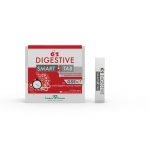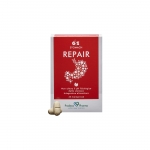Ours is a holistic approach that does not hinder the physiological processes of the body. It's an approach that encourages the restoration of balance, by combatting the causes of symptoms as efficiently as possible and ensuring fast relief.
Symptoms and relief
SELECT YOUR NEED
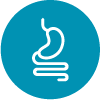
Stomach
DIGESTIVE SYSTEM DISORDERS:
DIGESTION ISSUES, REFLUX, HYPERACIDITY, HEARTBURN, STOMACH INFECTIONS
Gastrointestinal (GI) disorders are among the most common and widespread globally: about one-third of the world's population suffers from these issues.
In Italy, various gastrointestinal diseases affect as many as 89.6% of the population.
These are common conditions with a marked impact on the quality of life of those who suffer from them. In particular, the most common complaints are reflux and hyperacidity (36.8%), abdominal pain (32.4%), bloating and meteorism (28.1%), digestion difficulties (25.7%), and specific intestinal symptoms such as constipation (27.1%) and diarrhea (25.1%).

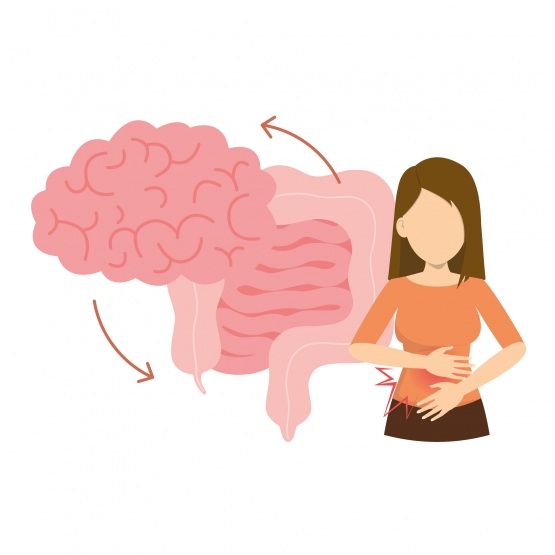
More and more scientific evidence has confirmed the key role of the gut-brain axis in connecting the mind and body.
This connection explains how psychosocial factors, such as anxiety and stress, can be both a cause and a consequence of gastrointestinal disorders.
The most common symptoms of gastrointestinal disorders are abdominal pain, feeling full, nausea, flatulence, abnormal bowel movements, constipation, belching and heartburn.
In some cases, these are transient phenomena that also occur in healthy individuals (20%); however, when they exceed a certain threshold in terms of frequency and duration, they can cause issues that compromise quality of life and undermine the individual's health. This is why it is necessary to carefully investigate the triggers and employ comprehensive approaches that include lifestyle.
Some of the main factors predisposing the occurrence of gastric disorders:
- anxiety and stress
- gastrointestinal dysbiosis
- improper nutrition
- hectic lifestyle
- smoking and alcohol
- frequent use of medications
- improper chewing
- altered gastric acidity

In addition, there are stages of life when digestive difficulties and reflux may occur more frequently, such as during pregnancy and menopause. During these stages, the body has to deal with several changes, especially hormonal, which can also affect the digestive system.
DYSPEPSIA OR SLOW DIGESTION:
A VERY FREQUENT ISSUE
Dyspepsia, commonly known as "slow digestion," is an organic or functional disorder of the stomach that usually manifests after meals, with the sensation of fullness, abdominal bloating and heartburn.
It affects a large number of people who are often unaware of the causes of their discomfort.

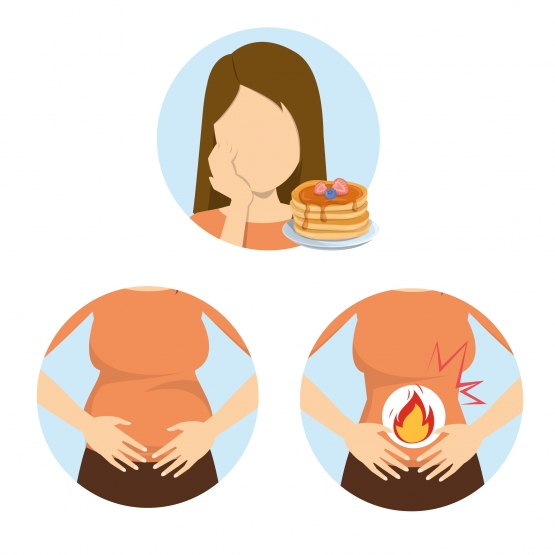
The causes of slow digestion can be many and varied.
Some of the most frequent are:
- Prolonged stressful situations;
- Alterations in gastric acid secretion;
- Altered hormonal condition (such as during menopause or pregnancy);
- Poor eating habits, such as eating too much (especially in the evening) or too fast, consuming heavy, fried or acidic foods, drinking too many carbonated drinks;
- Unhealthy lifestyle characterized by excessive alcohol and caffeine consumption, chronic use of medications and smoking.
Accordingly, digestive difficulties present themselves as an ill-defined situation of diffuse discomfort, which, in addition to being localized more precisely at the level of the stomach, may involve the entire body, causing symptoms such as:
- Nausea and vomiting;
- Epigastric pain;
- Heartburn;
- Heaviness after meals;
- Too early sense of fullness;
- Swelling;
- Sleepiness;
- Slowing of reflexes;
- Lack of concentration and nervousness.


The typical symptoms of dyspepsia often arise from disorders of the digestive system such as GASTROENTERITIS of a microbial nature (bacterial or viral) or FOOD POISONING, which often occur for traveling workers and tourists.
- nausea;
- vomiting;
- diarrhea
- bloating and abdominal pain with complete dysregulation of the digestive system.
The symptoms associated with microbial gastroenteritis or food poisoning usually persist for 2-3 days.
GSEvo®
Grapefruit Seed Extract with its various components enhanced thanks to the Molecular Bioliquefaction® process, leading to an improvement in its functional action:
CYTOPROTECTIVE AND CYTOREPAIRING ACTION
The flavonoids in the phytocomplex have been proven to protect the integrity of capillaries and tissues, increasing their resistance and accelerating the healing of gastrointestinal lesions due to their potent antioxidant effect. Furthermore, research from the University of Krakow has demonstrated the cytoprotective and cytorepairing role of GSE, showing that this extract can stimulate gastric microcirculation, the synthesis of functional substances and the repair of lesions.
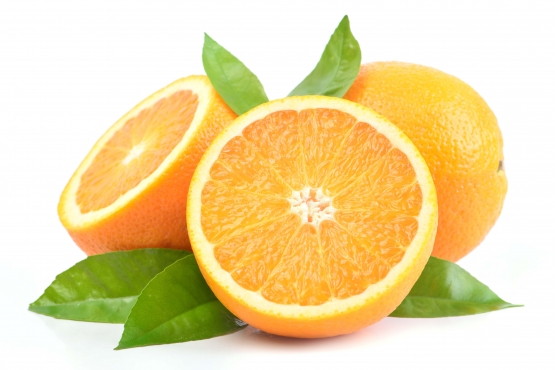
GSEvo®
Grapefruit Seed Extract with its various components enhanced thanks to the Molecular Bioliquefaction® process, leading to an improvement in its functional action:
CYTOPROTECTIVE AND CYTOREPAIRING ACTION
The flavonoids contained in the phytocomplex have been shown to protect the integrity of capillaries and tissues, increasing their resistance and accelerating the healing of gastrointestinal lesions due to their potent antioxidant effect. Furthermore, research from the University of Krakow has demonstrated the cytoprotective and cytorepairing role of GSE, showing that this extract can stimulate gastric microcirculation, the synthesis of functional substances and the repair of lesions.
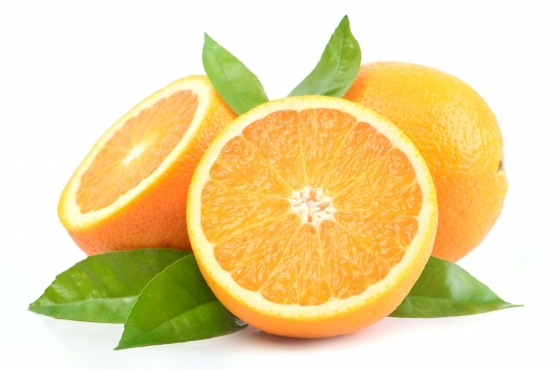
ANTIBACTERIAL ACTION
It has a selective and fast antibacterial effect by altering the bacterial cell membrane, able to bind amino acids from the surrounding environment, depriving microorganisms of the nutrients they need and thus causing their death.
PRICKLY PEAR AND OLIVE COMPLEX
Prickly Pear cladodes can create a protective layer by inducing increased mucus secretion. Olive leaves have a powerful antioxidant and anti-inflammatory effect due to their richness in polyphenols.
Clinical efficacy against symptoms:
The efficacy of the Prickly Pear and Olive complex was investigated in a randomized, double-blind, placebo-controlled clinical trial on gastroesophageal reflux symptoms (n=100; 400 mg/day for 8 weeks). Supplementation with the complex resulted in a significant improvement in symptoms related to gastrointestinal discomfort after only 4 weeks, including reflux, the sensation of acid and food rising into the mouth, chest pressure, nausea and heartburn, burning sensation in the throat, bad breath, cough and hoarseness, bloating, belching, and abdominal pain.
LICHEN
Thanks to its soothing properties, Icelandic Lichen coats the mucosa with a protective layer; it also has anti-inflammatory and antibacterial effects on the mucosa. Clinical studies (conducted in adults and children) have shown that doses between 160-480 mg/day can prevent both dry mouth and the inflammation of the oral mucosa, thus reducing coughing, hoarseness, discharge, inflammation and pain.
MARSHMALLOW
Marshmallow has significant protective and emollient action on the mucous membranes of the oral cavity and pharynx, soothing local irritation and inflammation. These important properties can be traced back to the bioadhesive and mucilaginous polysaccharide colloid contained in its root.
THYME
Due to the presence of essential oil, Thyme extract has expectorant properties and stimulates mucociliary clearance, reducing coughing and the presence of bronchial secretions. In addition, it has anti-inflammatory activity on the mucosa and promotes the digestive processes by favoring stomach emptying. In vitro studies have shown that it also has marked antimicrobial activity against various species of bacteria thanks to the presence of thymol.
FUNCTIONAL EXCIPIENTS WITH MUCOADHESIVE AND PROTECTIVE BARRIER EFFECTS

BANANA POWDER
Leucoanthocyanidins have been identified as the active molecules responsible for the anti-ulcer action of Banana pulp, exerting control over gastric acidity. In addition, the therapeutic effect of Banana could also be due to the increased synthesis of prostanoids and eicosanoids, protective factors for the gastric mucosa.
GREEN ANISE EXTRACT
Green Anise extract, rich in essential oil, has a traditionally prized and clinically proven digestive, carminative and spasmolytic effect, reactivating intestinal peristalsis, reducing gas formation and increasing the secretion of digestive juices. It has also been shown to be effective in reducing nausea.
Efficacy studies on dyspepsia:
A clinical study of 107 patients aged 18-65 diagnosed with functional dyspepsia and treated for 1 month with Green Anise powder showed that there was significant improvement and a decrease in most of the measured parameters (sense of heaviness and gastric tension, epigastric burning sensation and pain, belching, bloating, loss of appetite) in the treatment group compared to the placebo group.
CARAWAY, PEPPERMINT AND MUGWORT ESSENTIAL OILS
Caraway, Peppermint and Mugwort essential oils are strategically combined to act in synergy with a digestive, eupeptic and carminative effect, shown to be effective against the symptoms of dyspepsia, particularly against the sensation of heaviness and abdominal tension, while also giving the product a natural and pleasant aromatic taste without the addition of flavors.
Efficacy studies on dyspepsia:
The combination of Mint and Caraway essential oils for treating functional dyspepsia has been tested in several clinical trials, and the mix has proven to be effective in resolving the symptoms of slow and difficult digestion, both alone or when combined with other plant extracts.
THYME
Thyme is a very useful plant for aiding the proper functioning of the gastro-intestinal system. In vitro studies have shown that the components of Thyme essential oil, especially thymol, have marked antimicrobial effects against various species of bacteria (Helicobacter pylori) and fungi. Thymol can promote the perforation of the cell membrane of pathogens, resulting in cell death.
INDIAN PENNYWORT
It protects the capillaries and blood vessels of gastric epithelial tissues, strengthens the gastric mucosa by reducing the damage caused by oxidative agents and stimulates the production of mucin and glycoproteins by gastric mucosal cells.
RUTIN
It protects and strengthens blood vessel walls, improving microcirculation (vasoprotective effect), it increases the production of antioxidant enzymes, thus promoting cellular defenses, and it improves and preserves the structural integrity of gastric tissues.
ALOE VERA
Rich in polysaccharides with marked mucoadhesive, insulating and protective properties, it forms a natural barrier against the acidity of gastric juices and irritants, stimulating mucosal repair processes.
PURPLE LOOSESTRIFE
It decreases the production of proinflammatory cytokines and enzymes responsible for collagen degradation. In addition, the tannins and mucilages in the phytocomplex form a protective barrier over the damaged mucosa.
FRANKINCENSE
It decreases the release of inflammation mediators through a complex and multifaceted mechanism of action and it inhibits the elastase enzyme, preventing the destruction of collagen.
PASSIONFLOWER
It decreases smooth muscle spasms, has a calming effect on the CNS and helps balance gastric secretions, relieving heartburn and preventing mucosal damage.
LICORICE EXTRACT
Licorice extract has always been used in the traditional treatment of gastric disorders due to its potent anti-inflammatory, soothing, emollient and wound healing effects on gastrointestinal mucosa.
Efficacy studies on dyspepsia:
In a randomized, double-blind clinical trial, the therapeutic efficacy and digestive effect of a 30-day treatment with Licorice extract was examined in 54 patients diagnosed with functional dyspepsia who were followed clinically for 4 months. After 30 days, the treatment group experienced significant improvement or disappearance of all dyspepsia symptoms in 56 percent of cases compared with the placebo group.
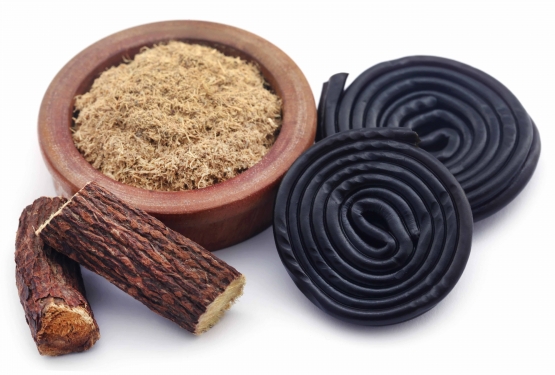
Lifestyle – STOMACH NUTRITION
A varied diet, based mainly on the consumption of plant-based foods, provides valuable elements for the stomach and the balance of the body. Nowadays, stomach discomforts (heartburn, bloating and feeling full even when one has eaten a small quantity, nausea, acid reflux, digestive difficulties) are continuously increasing. In light of this fact, nutrition plays a key role in both preventing and reducing gastric discomfort.
WHAT IS ALWAYS BENEFICIAL FOR THE STOMACH?
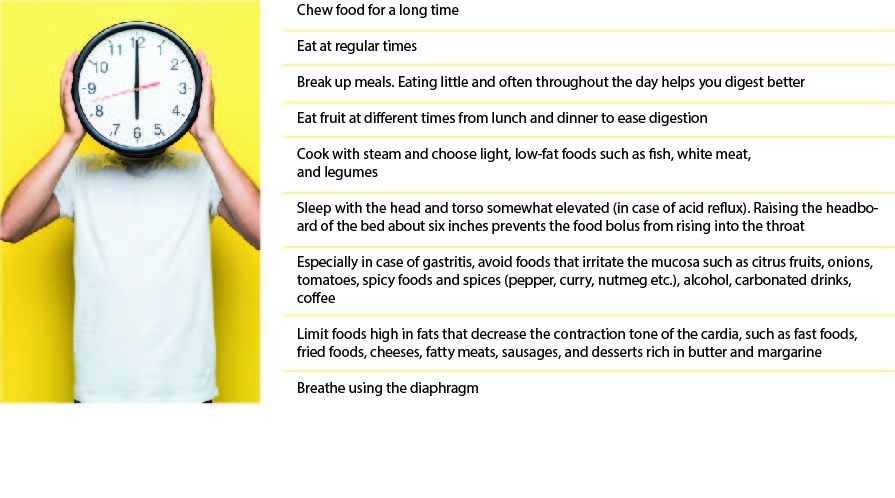
THE BENEFITS OF...
- DRY BAKED GOODS. As a rule, they do not cause either excess acidity or the common symptoms of dyspepsia (stomach pain including heartburn, bloating, the sensation of fullness and/or excessive belching, loss of appetite, nausea after meals, reflux) as long as they contain little fat, are not too sweet or too salty, and are made with adequate leavening. If you are unwilling to give up bread and focaccia, our advice is to avoid industrial-made products and choose those prepared using quality raw materials, while also allowing for products prepared with gluten-free flours (rice, buckwheat, quinoa, millet, etc.) that are well-cooked and subjected to a long leavening process that makes them more digestible. A good alternative to the suggestions above is consuming rice cakes or rice snacks, or those made from quinoa and rice, or buckwheat, etc.
- PUMPKIN. It has a soothing and "protective" effect on the mucous membrane of the stomach. Its consumption is particularly indicated in cases of excessive stomach acidity and heartburn. It can be baked, pan-fried, steamed, with soy or rice beverages, whipped and flavored with rosemary and roasted sesame and sunflower seeds.


- FENNEL. The beneficial properties of fennel are highly prized for promoting the proper functioning of the gastrointestinal system. There are different ways to prepare it, including cooking, raw or steaming; however, we recommend consuming it raw, as the active ingredients remain unaltered. Herbal tea with fennel seeds is among the natural remedies for aiding digestion.
- BANANA. A common food that is known to aid the repair of the stomach lining. Because this is a very sugary food, it is important not to consume too much.
DIAPHRAGMATIC BREATHING
Breathing with the diaphragm not only instills a sense of relaxation and well-being, but also plays a functional role in improving stomach discomfort, which is very often made worse by stressful situations. We recommend getting into the daily habit of breathing with the diaphragm by pushing the belly out when inhaling and pulling it in when exhaling. People often end up making the mistake of breathing with their chest muscles, paying little attention to the very act that could be beneficial for "curbing and containing" stomach discomfort (pain, reflux etc). Diaphragmatic breathing can be likened to a real massage for your insides and a calming treat that can be used whenever painful symptoms appear.
IMPORTANT. Symptoms sometimes considered "trivial," such as a bloated stomach, heartburn and digestive difficulties, need additional medical attention and investigation. A do-it-yourself approach is not always appropriate, including regarding food choices. If your stomach doesn't digest foods properly, your whole body will suffer the consequences.
- consuming foods of organic and/or 0-km origin
- following a varied diet, favoring the consumption of fruits and vegetables, preferably in season, easily digestible proteins (fresh small fish, white meat, eggs), legumes, pumpkin seeds, sunflower, flax, chia, etc., walnuts, almonds, hazelnuts, etc.
- consuming cereals, preferably whole grain but not only, because in some cases fiber prevents the absorption of minerals and other nutrients, semi-wholegrain cereals and pseudocereals (quinoa, buckwheat, amaranth)
preferring foods that are sources of omega-3 fatty acids, such as flax oil, hemp oil, oily fish (mackerel, sardines, sardines etc.), chia seeds, flax seeds, etc. - idratarsi adeguatamente. Il fabbisogno staying adequately hydrated. Water requirements vary from individual to individual and change according to different lifestyles, type of activity and diet. An adult should generally drink 2 liters of water per day to maintain good health. Water is an essential element for the body because it regulates various biological functions. Therefore, it is important to maintain proper hydration, especially during the summer season, during sports activities and in all situations in which a lot of fluids are lost.
- avoiding abuse of gluten-containing foods, packaged foods and fried foods
- limiting sugar, sugary drinks, refined grains (white bread, white pasta, white rice, etc.)
- avoiding hydrogenated fats, limiting red meat, milk and its derivatives, and salt. When consuming them, prefer those of high quality
The notions and advice offered herein are for educational purposes only and cannot under any circumstances replace medical advice. For a complete diet, it is necessary to consult a nutritionist, who, after appropriate clinical and instrumental examination, will be able to identify the needs of the person concerned and put together a personalized diet plan.
